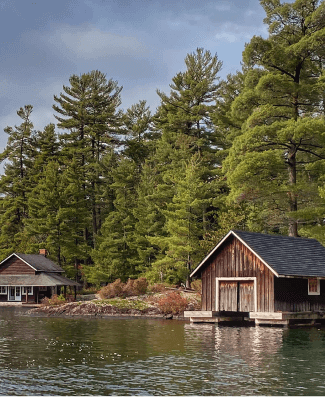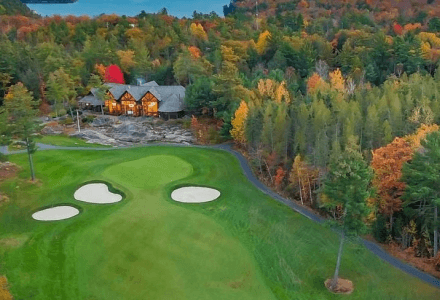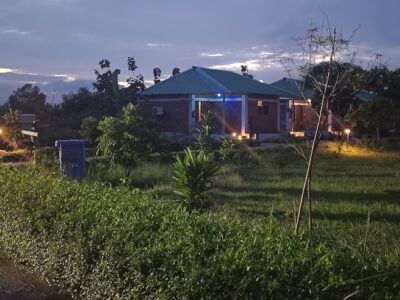Discover Lake Chad
Have you ever wondered about the impressive bodies of water that grace our planet? Let’s take a moment to talk about Lake Chad, a once-majestic freshwater lake snuggled in West-Central Africa.
Back in 1983, the lake boasted a sizeable presence, but over the years, it has experienced significant shrinkage due to a combination of factors, including:
- Persistent Droughts
- Increased Evaporation due to higher temperatures
- Irrigation demands affecting inflow
- Climate Change
Despite these challenges, Lake Chad remains an essential water source in the Sahel region, supporting agriculture, providing livelihoods, and hosting incredible biological diversity.
In response to its shrinking size, international efforts are underway to find a sustainable solution to preserve Lake Chad for future generations. Your awareness and interest are vital to the global sustainability and environmental protection conversation. Remember, every drop counts, and so does every effort to understand and cherish our planet’s precious resources!
START PLANNING YOUR TRIP
Top 3 Facts about Lake Chad in Chad
Historical Importance
Lake Chad is one of Africa’s largest freshwater lakes and has historically been a vital resource for the surrounding communities. It has served as a major hub for trade, transportation, and fishing, supporting millions of people in Chad, Cameroon, Nigeria, and Niger.
Shrinking Waters
Over the past few decades, Lake Chad has experienced a significant decline in water levels, shrinking from its original size of around 25,000 square kilometers to less than 1,500 square kilometers today. This dramatic size reduction has been primarily attributed to climate change, unsustainable water use, and increased demand for irrigation.
Ecological Diversity
Despite its diminishing size, Lake Chad remains a biodiversity hotspot, supporting many plant and animal species. It is home to diverse birdlife, including migratory birds such as pelicans, flamingos, and herons, as well as numerous fish species, such as tilapia and catfish.


Must See Attractions
Chadian Wetlands
Wetlands
Explore the remaining wetlands and marshes surrounding Lake Chad, which are vital habitats for diverse bird species, including migratory birds like pelicans, flamingos, and herons. Birdwatching enthusiasts will appreciate the opportunity to observe these majestic creatures in their natural environment.
Bol
Village
This is the administrative center for the region surrounding Lake Chad and offers insight into the local culture and way of life. Visitors can explore the local markets and interact with the community.
Chari-Logone River Confluence
Confluence
Explore the confluence of the Chari and Logone Rivers, which feed into Lake Chad. This scenic spot offers opportunities for boat trips, birdwatching, and observing local fishing practices. It also serves as a reminder of the intricate relationship between the rivers and the lake’s ecosystem.
Annual Events and Festivals
World Wetlands Day
Celebrated annually on February 2nd, World Wetlands Day raises awareness about the importance of wetlands and their conservation.
In the Lake Chad region, this day may be commemorated with educational workshops, community clean-up efforts, and cultural events highlighting the significance of wetland ecosystems for biodiversity and livelihoods.
Chadian National Day
Chadian National Day, celebrated on August 11th, is an occasion to commemorate Chad’s independence and cultural heritage.
Festivities may include parades, cultural performances, traditional music, and exhibitions showcasing the diverse cultures and traditions of the country, including those of the Lake Chad region.
Gerewol Festival
Have you seen a beauty pageant for men, judged by women? That’s the Gerewol for you—where the Wodaabe men adorn themselves to impress. It’s not just a contest; it’s a storied event tying the Wodaabe to their ancestry and heritage. Picture it: tall, elegant men dressed in elaborate costumes, their faces finely painted, performing traditional dances under the Chadian sun. This festival brings together different clans and reinforces their sense of community.
Top Hiking Trails
N’Djamena Riverfront
N’djamena
Along the banks of the Chari River in N’Djamena, the capital city of Chad, there are promenades and walking paths where locals and visitors can enjoy leisurely strolls.
Take in views of the river, watch local fishermen at work, and soak up the vibrant atmosphere of the city.
Waza National Park
CAMEROON
Situated in the south of Chad, Waza National Park offers guided walking safaris and nature walks through its savannah grasslands. Accompanied by experienced guides, visitors can explore the park on foot, observe wildlife such as elephants, giraffes, and antelopes, and learn about the park’s conservation efforts.
Toukra Desert
TOUKRA
East of Lake Chad, the Toukra Desert is a vast expanse of dunes and desert landscapes that offer adventurous hiking experiences. While hiking in the desert requires proper preparation and guidance, it presents opportunities to witness the stark beauty of the Sahara and encounter nomadic communities that call the desert home.
Water Sports
Canoeing
Picture yourself gently paddling a canoe through calm waters, with the orange hues of the setting sun reflecting off the lake’s surface. It’s serene, peaceful, and lucky for you, Lake Chad offers just that!
Canoeing here is not only a way to unwind but also a means to explore the abundant natural beauty and see the local fishing communities in action.
Fishing
Lake Chad has long been renowned for its rich fisheries, supporting local communities and providing livelihoods for fishermen.
Fishing enthusiasts can try their hand at catching various fish species, including tilapia, catfish, and Nile perch while enjoying the lake’s serene beauty.
Boating
Boating is a common activity on Lake Chad, allowing visitors to explore its vast waters and scenic surroundings.
Whether in motorized boats, traditional pirogues, or sailboats, boating provides opportunities for leisurely cruises, fishing trips, and birdwatching excursions.
Winter Activities
Wildlife Safaris
The dry season is an excellent time for wildlife viewing around Lake Chad.
Visitors can embark on safaris in nearby national parks and reserves, such as Waza National Park, to spot diverse animals, including elephants, giraffes, lions, and antelopes.
Birdwatching
Lake Chad and its surrounding wetlands are essential habitats for birdlife, especially during the dry season when water levels are lower, and birds concentrate in larger numbers.
Birdwatching enthusiasts can observe migratory species such as pelicans, flamingos, herons, and ducks.
Boat Tours
Take a boat tour of Lake Chad to explore its shores, islands, and wetlands. Boat tours offer opportunities for sightseeing, photography, and learning about the lake’s ecology and the challenges it faces.
Where to Eat
Restaurant Mandi
$$ – $$$ • Chadian
La CAVE
$$ – $$$ • Lebanese
Côté Jardin
$$ – $$$ • French, African
Where to Shop
Grand Marché
Central market
Bol
Traditional stores
Boucherie Camel – viande de chameau
Grocery store
Where to Sleep
Tips on Renting a Vacation Home on Lake Chad
Know Your Options
First things first, dig into the types of accommodations available. From cozy bed-and-breakfasts to more spacious vacation rentals, Lake Chad has a variety to choose from.
Research the Area
Before booking, research the area around Lake Chad where you’d like to stay. Consider factors such as proximity to the lake, amenities, safety, and accessibility to attractions and activities.
Plan Ahead
Book your vacation rental well in advance, especially during peak seasons or popular travel times. This will ensure you have the best selection of properties to choose from and can avoid last-minute disappointment.
Be Flexible
Keep an open mind and be flexible when searching for vacation rentals on Lake Chad. Consider alternative dates, locations, or property types if your first choice is unavailable or doesn’t meet your criteria.




Going Deeper: History and Cultural Significance of Lake Chad
Lake Chad has a rich history and cultural significance that has spanned centuries. As one of Africa’s largest freshwater lakes, it has been a vital lifeline for the communities that have flourished along its shores.
Historically, Lake Chad served as a trade, transportation, and fishing hub, facilitating economic exchanges and cultural interactions among diverse ethnic groups. The lake’s fertile waters supported thriving civilizations, including the Kanem-Bornu Empire and the Sao civilization, whose legacies endure in the region’s cultural heritage. Lake Chad is also steeped in myth and legend, with indigenous communities attributing spiritual significance to its waters and surrounding landscapes.
Today, the lake continues to play a central role in the lives and livelihoods of millions of people, providing water for irrigation, fishing, and domestic use. Its ecological importance and cultural heritage make Lake Chad a source of sustenance and a symbol of resilience and interconnectedness within the Chad region.
Frequently Asked Questions about Lake Chad
You’ve likely heard that Lake Chad isn’t the giant it once was. The shrinking has much to do with climate change, increasing temperature, and extensive irrigation demands. Not so long ago, Lake Chad was vast, covering an area larger than many countries.
Imagine a watering hole in the Sahara; now, picture it shrinking. As Lake Chad contracts, wetlands dry up, and species lose their habitats – it’s a tough break for wildlife.
Lake Chad is no new kid on the block – it’s been around for thousands of years. This once-massive lake was a cornerstone for regional economies and societies in Africa, serving as a hub for trade, and agriculture and fostering cultural exchanges. Its richness in biodiversity also made it an ecological treasure.
Don’t think all hope is lost for Lake Chad. Initiatives like the Lake Chad Basin Commission are working on water management and environmental restoration projects. International partnerships are fighting the good fight to stabilize and revitalize the region.
Rewind about 7,000 years ago, Lake Chad was Mega Chad – an enormous body of water. Its transformation to today’s shrunk version has reshaped the region’s geography, turning large areas into desert landscapes and altering the natural flow of water, which affects the fauna, flora, and human settlements.
Indeed, it’s all connected. The health of Lake Chad directly influences the livelihoods of the millions living nearby in Chad, Cameroon, Nigeria, and Niger. Agriculture, fishing, and herding are all intertwined with the lake’s well-being; when it suffers, so does the local economy.



